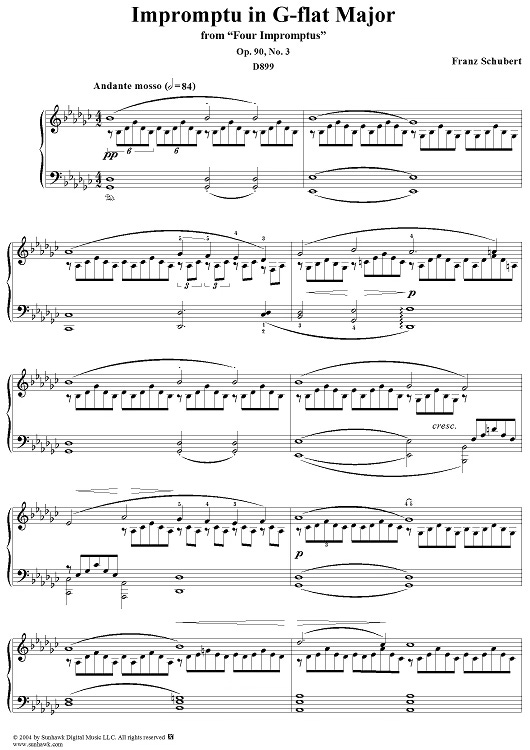Note: You can start reading here or anywhere and then go back if you like. See Table of Contents. Come in the middle? Robert is the narrator who discovers after his wife Lena has died that she had a lover, Isaac. Evan is Isaac’s wife. Robert is on a search for how he lost her: He’s creating the story through memory, invention and a search for the truth and his role in what happened—and by stalking Isaac.
They met at the Tabard Inn on N Street downtown. It had been a long drive to his farm and now a long drive back to the city. He drove his white pick-up truck, an affectation of the suburban gardener, but he’s no farmer.
As I’ve told you, I followed Isaac before Lena died, while she was ill, after that moment, the brush of his hand in the strands of my wife’s hair.
When Isaac arrived, she came to him and kissed him on the mouth.
I’d entered through the patio off the back of the restaurant, slipped into a corner seat at the bar. Her table was just behind my stool. I could turn and see. I could hear them.
Karen is a larger, stronger-built woman than either Evan or Lena and looks athletic the way some tall women do, the length of their legs perhaps. She has thick but shapely legs, wore a finely tailored business suit, high heels. She crossed her legs and revealed through a pleat in the hem of the skirt her knee and thigh—the quads defined, a woman who works out. She ordered a glass of champagne and fruit: blood oranges and strawberries arrived with his club soda.
The bitter taste rises up in my mouth like bile.
“Remember when I made the veal scaloppini,” she asked, “with orange juice and scallions?”
“Yes,” he said, “oranges like these.”
“You remember.”
“Of course.”
“Do you remember when I cut the oranges open? How surprised you were by the color.”
“The red, yes. I like to watch you eating them. Eat.”
Instead she placed the red flesh in his mouth with her fingers. “You kissed me then,” she said. “I was standing near the sink. You left after dinner.”
“I remember you followed me to the bathroom,” he said, “how you forced me down on the seat, wrapped your legs around me.”
What if Lena knew about this meeting?
When Lena and I were naked together for the first time, I sat on the bed and she climbed atop me, sat in my lap, my penis beneath her, wrapped her legs around me. I was startled by her openness, the way I could feel her open mouth between her legs, the way she impulsively took this position, sure of me, it seemed. Long before she died, she stopped doing this.
“Eat now,” and Karen gave him another slice of orange.
What did they have together? A meal, an orange, passion in a bathroom? I thought, They eat the past.
I hated him for what he did.
I walked to them. I stood by the table. He wanted to confront me, to find out why I followed him. And this aroused me.
He was angry, began to stand when Karen took his hand, pulled him down next to her, said, “What’s with him?”
“Nothing. I don’t know.”
With this, he laughed and sat down, kissed her there in front of me. He had what I wanted. Not the woman, but the control. He’d taken control. I walked away, out of the bar, into the street, to my car.
This is what I think she said next. “Maybe we should get out of here. Remember ‘The Schubert Impromptu in G flat’? I have it in my room. Schubert and oranges.”
In my home I sat before my piano that I had now tuned. I had watched the black-suited tuner struggle with the pins on the wrest plank, heard him test the intervals, his fingers on the keys, sound resounding in my living room. But I had not yet played. The piano makes me think of home. I looked at the keys of the piano. I wanted to play the impromptu, the Schubert in G flat so I could imagine Karen and Isaac together, dancing. But I couldn’t touch the keys.
I heard Lena. Before Isaac and Lena’s story began in my head, she told me a story about dance, an old rabbi’s tale. She said, “I feel you without seeing you the way I know I could see your sound if I were deaf. There’s a story of the deaf who see the sound and join the dance. In this way, I’ll join you always—even in absence.” I understood in some way what she meant for me to get from this, but the meaning of the rabbi’s parable eluded me. Now I think often of this: The deaf hearing the sound. I, who have no dance in me.
I touched her the way I’ve touched the keys of the piano. A practiced touch, light on the clitoris, firmer on the labia, a pressing of the lips together to hold the center of her, to touch her string that lies on her soundboard, to raise her pitch. I have perfect pitch, a gift and curse, this perception of sound and touch. I know how to do this. I wasn’t erect when I touched her. Did I love her? This is what I’m sure she thought when I touched her this way. She resisted the letting go though I was always able to get to her, finally, if I played the keys of her soft inner lips, played them long enough, varied my touch, reassured her that she would come. But she resisted because I couldn’t enter her after. I am aroused, I told her, but my penis lay against my thigh.
And then I began the Schubert in G flat, faltered on the phrasing, but my hands moved across the keys, and I, the observer of her story and mine, saw Lena on top of Isaac, sitting astride the way she stopped doing with me because I couldn’t come that way.
She always had to be beneath me for me to come, had to support my penis with her hand for me to enter, and I suppose she thought about this while she was on top of Isaac, his penis inside her. Then she lay on her side. And Isaac, did he touch her the way I had? Ever so lightly on the clitoris and then along one side of the vulva, grabbing the side of the labia with his hand, holding and pressing slightly, but arousing her in a new way, in a way she hadn’t known possible and, when she was close to climax, did he become erect again, tell her, “I need to”? She would have turned on her back for him, taken him inside her and he came again.
While he lay above her, his head flushed, his eyes on her, he said, “I’m so selfish. I’m sorry.”
I try to imagine what she loved in him—or better: Did she love him?
Lena would have said, “Isaac, you’re not selfish. Why do you say that?”
“Because I didn’t wait for you.”
“But don’t you see, Isaac, that the way you lose it to me—this is what I want. It’s what I’ve never had.”
What I couldn’t do with her: Lose it.
With me, with her hands around my head, my penis still inside her, I could feel her muscles still flexing and I’d say, “You’re squeezing me so hard. How do you do that?” “I’m not doing it. I’m still aroused. You can feel it?”
Did she do this with Isaac. Did he answer, “Yes,” and add, “but I’ve never felt that with Evan”?
I know Lena resisted the climax with Isaac, despite her high arousal, such that her vulva beat like a heart, held him. She couldn’t go fully with him though she may have believed she was totally with him, more than with any other man.
You may think this odd, but that day I was sure of it, that she could only do this with me, her husband, the man she must have believed she no longer loved. Only with me could she roll into the ringing bell of love; only out of love, not in love, could she ring.
I knew this as I rolled into the G flat major bars, as I deepened my touch in the left hand, the single note melody rising from the strings and the soundboard and then at the same time moving up and down softly on the keys that are the background in the piece. I didn’t falter as the piece softens and slows to its first quiet dying fall at its mid-point because I knew through the playing that Lena understood that to climax would be the ultimate betrayal of me—and of Evan.
I took my hands from the keys, placed them in my lap and listened because the music vibrates in your ears when the sound is gone if you will only listen, not move on to something else, but listen. I couldn’t finish the Schubert that day, but I’d begun. I’ve had much to learn from the Schubert in G flat, for I, a man with perfect pitch, have been deaf.
My mother taught me to play the piano. I was good because I could hear the tone before I played it, touch the keys so that they rang like bells. This bell-like quality in the key of a piano is an extension of the head and heart. It is rarely heard and when it is, the listener knows that something ineffable has opened and closed between the hand on the key and the hitch pin, the hammer, the string and the soundboard. This can’t be taught. I have this. This is the touch I had used on Lena.
I disliked studying with my mother, her fawning over my gift, the intimacy of learning what I needed to know from her because, with the gift, the music was irresistible—though I resisted it now. As a child, I couldn’t resist: my gift, my perfect pitch.
I went to the piano when I was three and picked out a tune my mother had been playing. She’s told me about it many times. I played the melody notes of “What’ll I do?”, an Irving Berlin favorite of hers. She still plays it and makes me wonder what she thinks about when she does, who she misses, if she loves my father.
Whiting is a small town and I could study only with her. I hated this loss of choice by birth: my gift that I couldn’t resist, my need to sit at my mother’s knee when other boys played ball, shot guns in the woods. I did those things but played the piano with her when she chose. She was the teacher. It’s hard to study music with a parent.
Didn’t she know this? Didn’t she understand the power of the Schubert in G flat? All the Mozart? The Stravinsky that came later? Did she see that I was aroused by the music?
The erections came when I turned twelve, on the piano bench, next to my mother. I had to stop the lessons. The shame of arousal in my mother’s presence. She doesn’t understand why I stopped.
How could she understand even now that she’s old and so am I?
The Music Lesson, chapter seven
Table of Contents.
Love,












"I took my hands from the keys, placed them in my lap and listened because the music vibrates in your ears when the sound is gone if you will only listen, not move on to something else, but listen." The interplay in this chapter between piano playing and sexual touching is wonderful, and your writing is still vibrating in my mind!
My god, so psychologically profound and sophisticated! I feel like this chapter alone could be dissected and analyzed over an entire university term. The Oedipal layer is especially intriguing, the narrator’s precision and gift, certainly adored by the mother, yet not what the wife/lover wants. As if his clear hearing is exactly what makes him deaf to love. I’m baffled by your brain Mary!